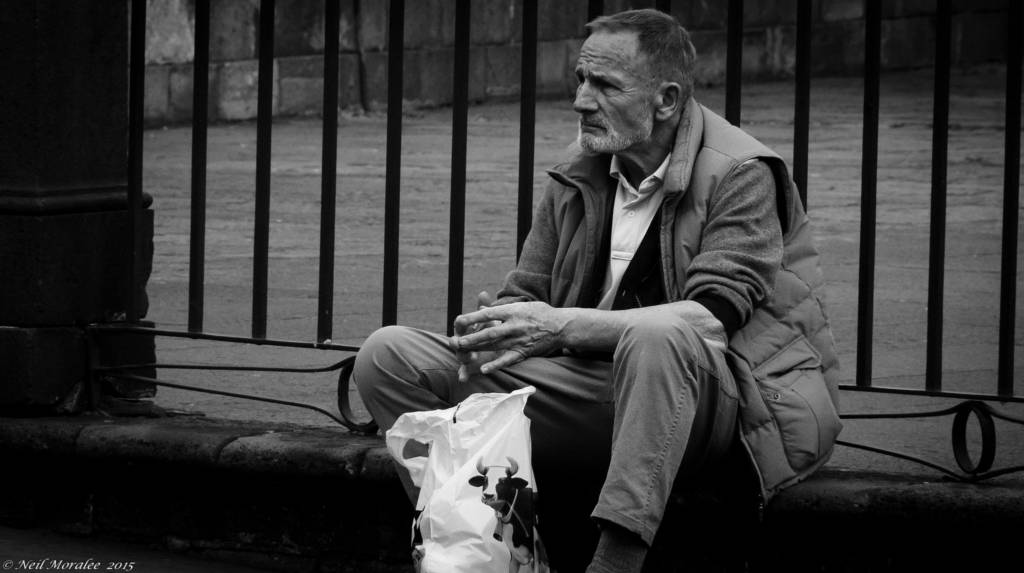A new program to benefit elderly District of Columbia residents is now in the early stages of implementation.
“Age-Friendly DC” coordinates collective action through 2017 to improve accessibility to transportation, health services, housing, and more for District residents over the age of 50. DC was selected for a global initiative by the World Health Organization Kobe Project to pilot Age-Friendly Indicators, which collects data and gathers input for improvement to make cities more friendly for its aging population. The program was approved by Mayor Vincent Gray in 2012 with unanimous support from the Council of the District of Columbia.
This plan hits home for Angie Whitehurst, a Street Sense vendor who recently attended a public information meeting about volunteering for the initiative. “I have a mother that is a senior citizen. She is 86. I’m a senior citizen and I’m 62, and I have a sister who is 55. I know a lot of people who can benefit from this program,” Whitehurst said.
Between March and September of last year, a Block-by-Block Age-Friendly Walk canvassed many areas of the city for walkability, access to services and transportation, and various other concerns.
Age-Friendly DC Coordinator Gail Kohn is optimistic about the initiative’s future. She said that after last year’s successful Block-by-Block walk-through, they will “follow up this year with a livability index as well as documenting services that have been done so far.”
Whitehurst sees a real need for this program: “If you age in place, you have everyday living problems and you can become very isolated. You might not want to ask for help or know that there are services available to keep you alive, and living well and happy.”
A factor of Age-Friendly DC that will impact the elderly community is a wider range of affordable housing options for older residents aging in place, and other home modification programs.
“Overall, that goal would mean streamlining the port for affordable housing. You can’t say housing without support services,” said Kohn.
Teressa Dorsey has lived at Kuehner House, a residence for single, low income senior citizens, for four years.
“I found the housing from an organization called SOME [So Others Might Eat]. I was homeless and I was looking for food and shelter. I had a history of substance abuse and once I completed a program for them, they had housing for us to go to,” said Dorsey.
According to projections conducted by the National Alliance to End Homelessness, the current elderly population (people over the age of 65) is projected to more than double. Over 95,000 elderly persons are expected to be living without stable housing by 2050.
“The housing inventory for seniors is limited, what they do have is too expensive for us to move into, we really need more affordable housing for seniors,” Dorsey said.
“Homeless elders, although increasing in numbers, continue to be a forgotten population,” the National Coalition for the Homeless reports. The Age-Friendly DC initiative hopes to combat this by bringing attention to elderly needs in DC.
Age-Friendly DC will offer senior citizens and disabled persons property owner tax relief. The Handicapped Accessibility Improvement Program and the Single Family Residential Rehabilitation Program will also offer loans and grants for home improvement and repair.
“A lot of odds are against people who start getting older,” Dorsey states from personal experience.
Councilmember Anita Bonds has pushed for Senior Citizen Tax Relief legislation in the budget process. Bonds proposed the “Senior Citizen Real Property Tax Relief Act of 2013,” which was significantly altered for the FY15 Budget Support Act of 2014. This legislation requires every senior homeowner over 70 to pay their property taxes and then file for a Schedule H form to obtain their property tax reduction through an income tax refund.
In a statement released by her office, Bonds stated that, “Unfortunately, the will was not there to see this through; however, I will continue to fight for what’s right and represent the District’s most vulnerable residents, including senior citizens to the best of my ability.”
The Fiscal Year 2015 budget addresses affordable housing and homelessness but does not allocate funding to any senior citizen initiatives.
“[Age-Friendly DC] can help to better secure your own future, and that is important to people who are aging in place because it is about self-respect, dignity, self-sufficiency, and maintaining your legal and spiritual independence,” Whitehurst said.








